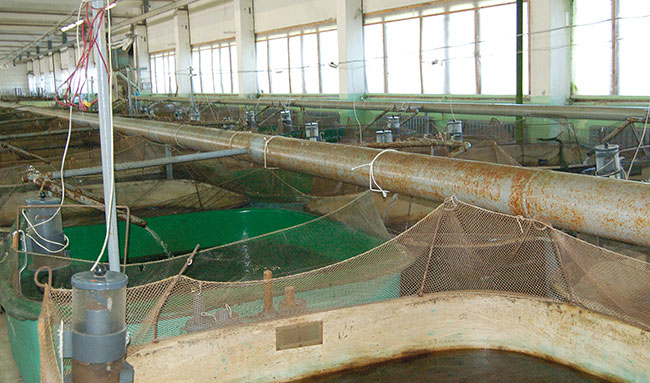
News & Views
Russia considers expanding state aid program for independent hatcheries
February 24, 2023 By Hatchery International staff
 Russian fish farming is not in the best shape.
(Photo: Sevrybvod)
Russian fish farming is not in the best shape.
(Photo: Sevrybvod) In 2023, Russia will begin reimbursing capital costs of building new hatcheries, Eugeny Kats, director of the aquaculture department in the Russian Agricultural Ministry, outlined during an industry conference in December.
Last year, import-replacement issues in Russian aquaculture came to the fore as supplies from Western countries were disrupted by sanctions. In this background, the government greenlighted state aid for the construction of feed mills specializing in fish feed production, Kats said, estimating that under the proposed scheme, nine new feed mills are planned to be built in Russia in the next few years.
“We still have an issue with reimbursement of capital costs for the construction of hatcheries. I believe we will solve it in 2023, both in terms of mechanism and the source of money,” Kats said.
Last November, the Russian government exempted young fish, bloodstock and fish embryos from VAT for two years. Russian fish farmers association Rosrybkhoz welcomed the decision but asked the authorities to raise the threshold on revenue not subjected to VAT from the current 60 million roubles (US$850,000) to 350 million roubles ($5 million).
Most hatcheries in Russia are part of Glavrybvod, a state-owned operator primarily engaged in environment-protecting activities. The new state aid is promised for private investors breeding fish for commercial purposes.
In addition, the authorities promise to expand the soft loans programme for Russian fish farmers and hatcheries. Rosrybkhoz estimated that in 2022 its members got loans with a subsidized five per cent rate with a total value of 635 million roubles ($9.5 million), 30 per more compared to the previous year.
Russia’s dependence on imported broodstock is close to 80 per cent, estimated Anton Alexeev, head of Aquafarm, operating a RAS trout farm in Leningrad Oblast. Before the sanctions, Russian farmers imported broodstock from European countries, such as Denmark and Poland.
Currently, to keep production running, the best way for Russian businesses is to purchase broodstock through third countries, like Armenia or Kazakhstan, though this entails higher logistics costs, he said.
Print this page
Advertisement
- Ukrainian fish farmers sustain huge damages
- Aquaculture veterinary training initiative launched in Scotland





